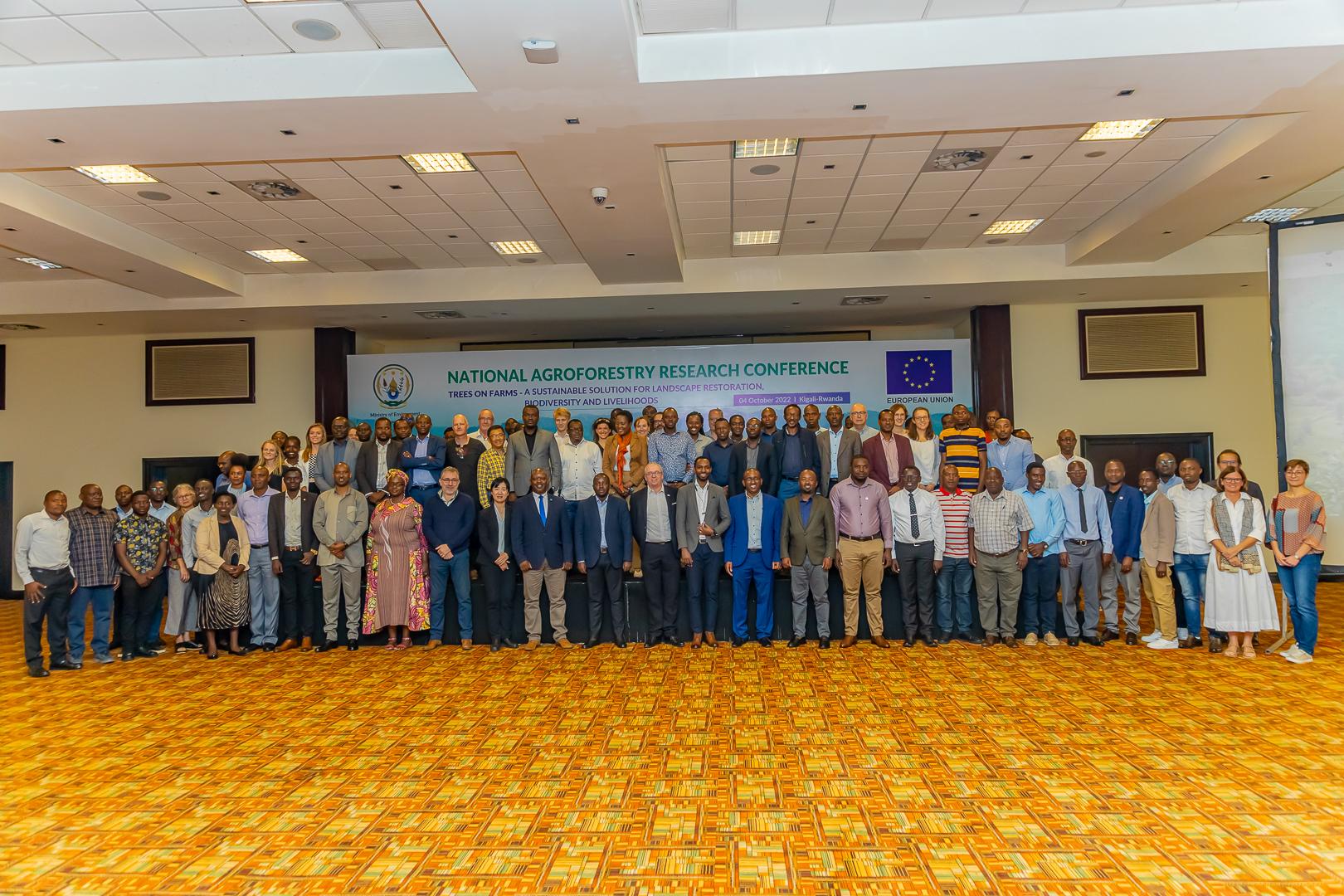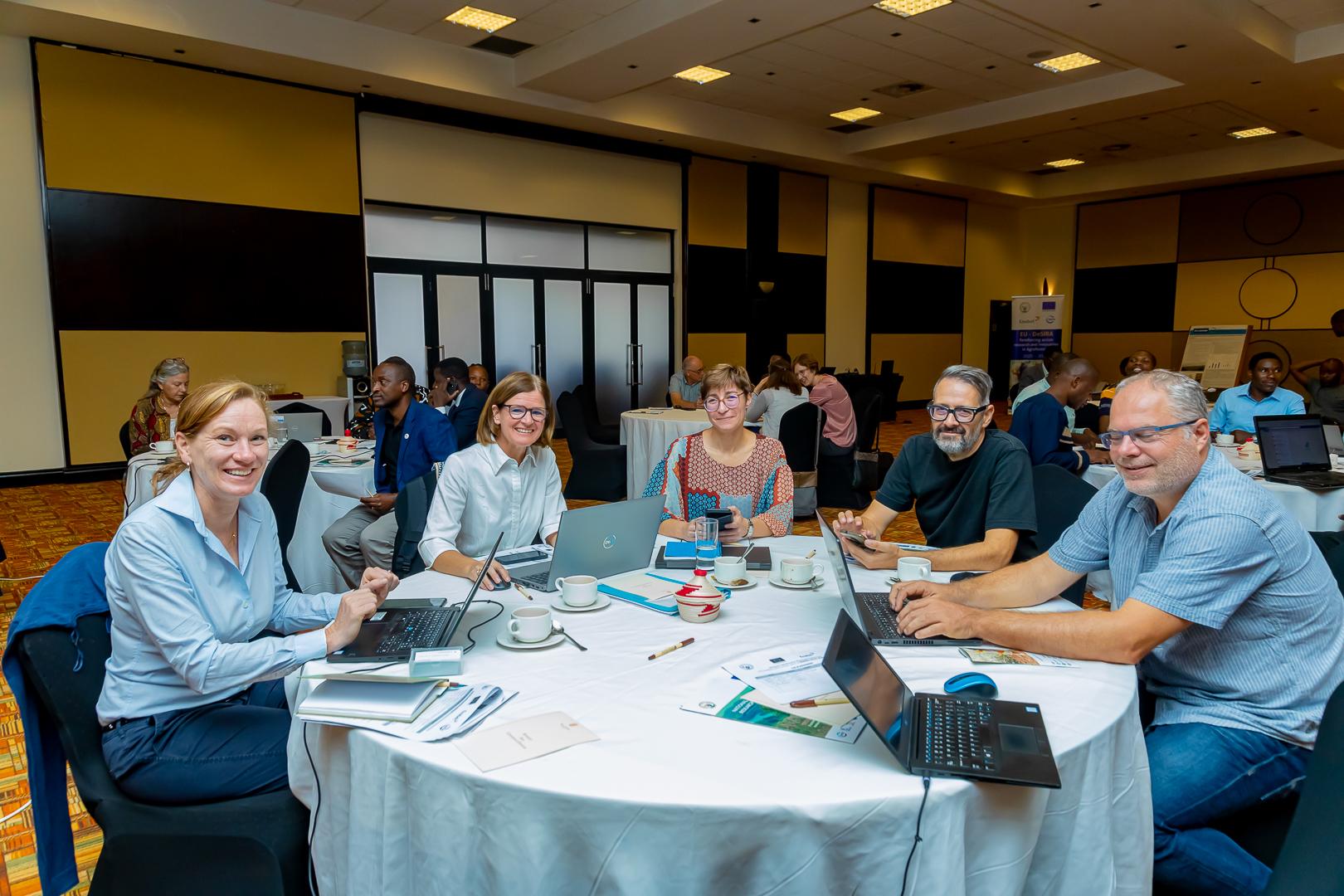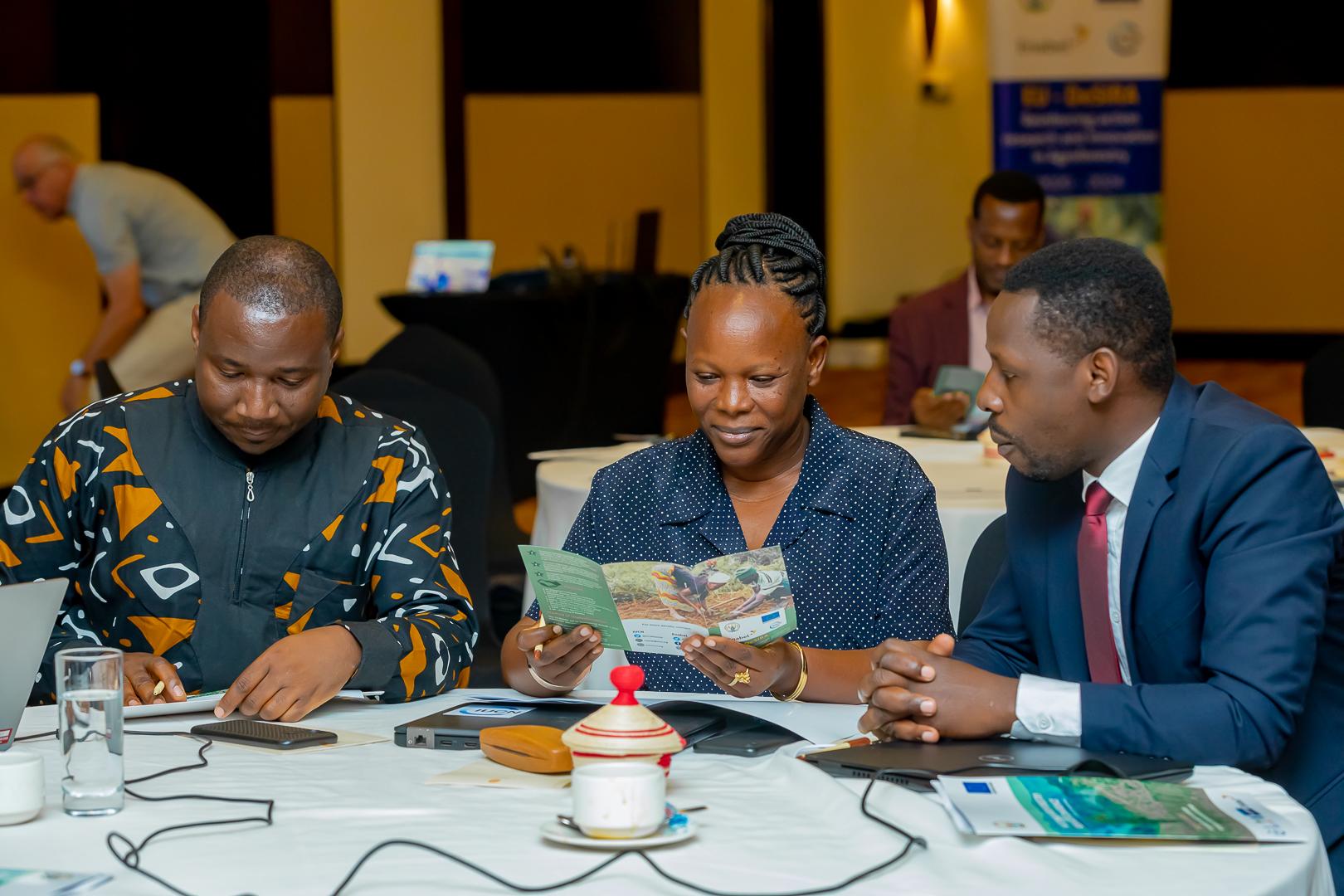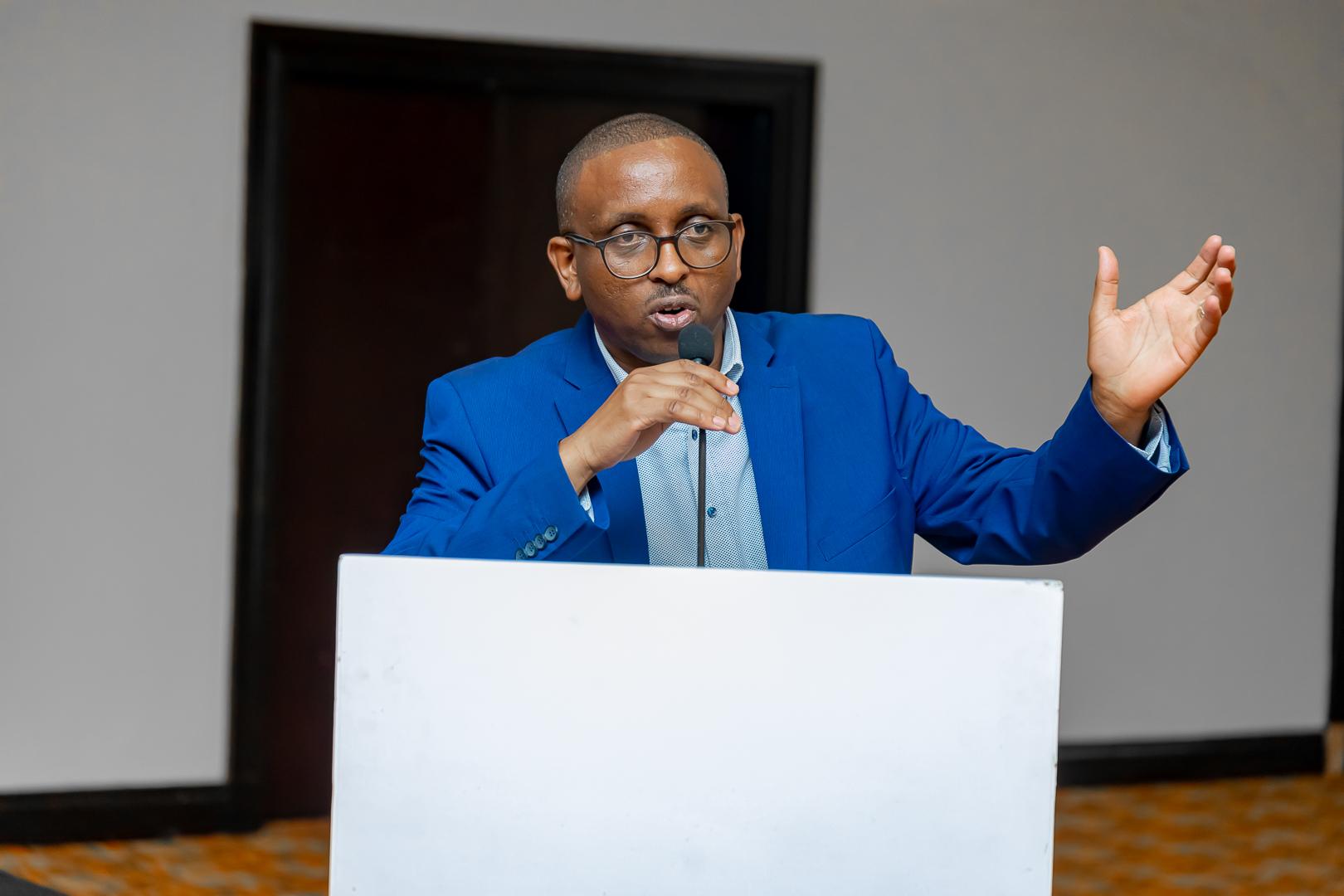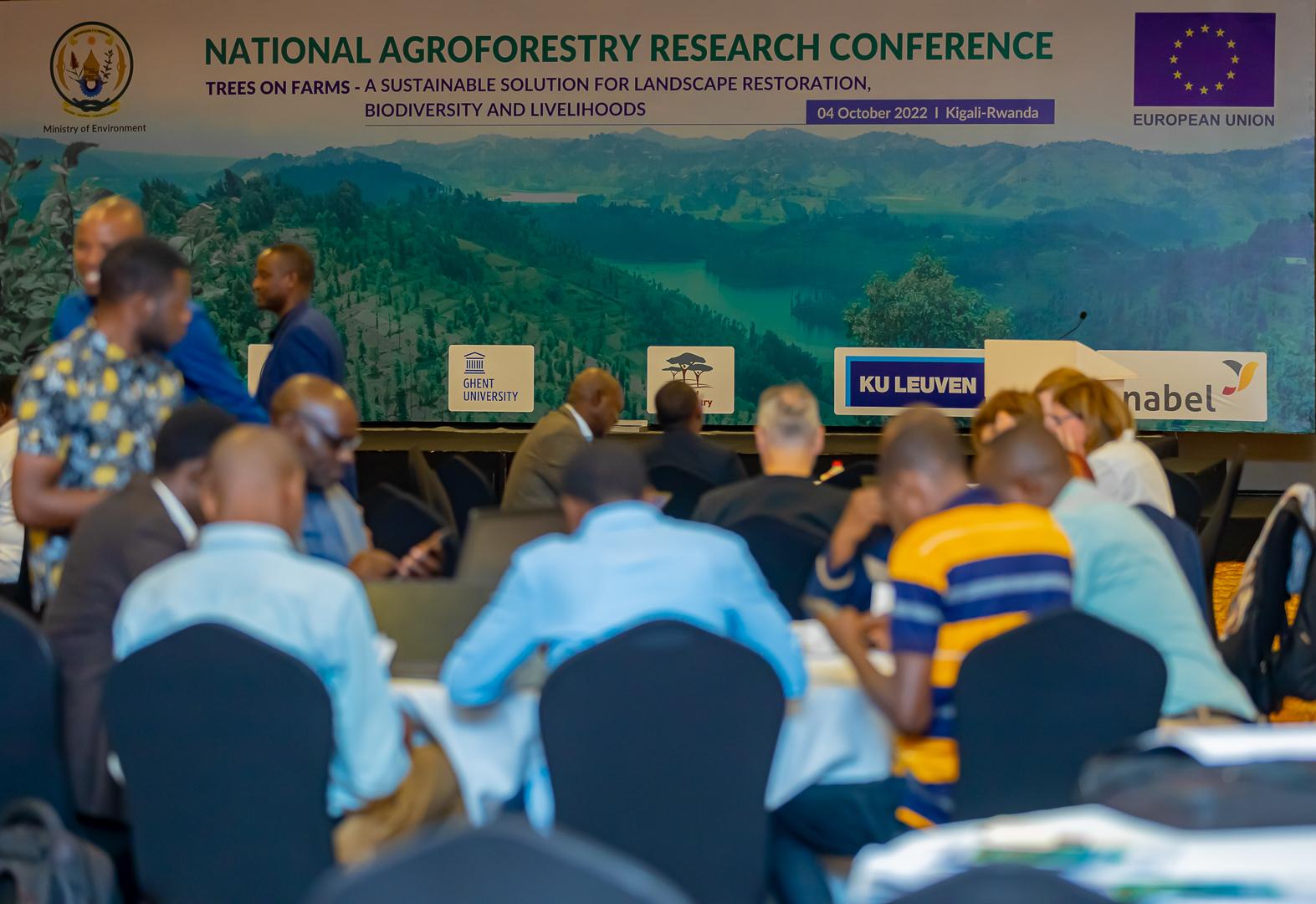Rwanda: National Agroforestry Research Conference - Trees on Farms for Landscape Restoration, Biodiversity and Livelihoods
Kigali, 4th October 2022 - The
Ministry of Environment in collaboration with Enabel and the International Union for Conservation of
Nature (IUCN) conducted the
National Agroforestry Research Conference themed “Trees on farms - a sustainable solution for
landscape restoration, biodiversity and livelihoods”.
The conference brought together research and academic
institutions and different stakeholders supporting Rwanda's
landscapes
production capacity restoration and climate change mitigation through
agroforestry.
Various exchanges in this
one-day conference covered several
themes regarding the
ecosystem services of agroforestry systems; biomass and energy supply potential
in agroforestry systems; the socio-economic of agroforestry adoption; and agroforestry system monitoring tools and
approaches.
For a concrete and sustainable Impact of agroforestry
to the National ecosystem, various studies are being conducted by academic and
research institutions including the University of Rwanda, the university of
Gent, KU Leuven and the International Centre for Research in Agroforestry
(ICRAF) under DeSIRA program (Development Smart Innovations through Research in Agriculture and food security)
funded by the European Union.
According to Mrs Gatesi Juliene, a researcher from the
University of Rwanda, Landscape restoration primarily depend on trees, which
harmoniously improve livelihood and biodiversity. “Ground Data have shown that
where trees have been planted, the greenness has attracted the whole ecosystem
including insects and birds and the soil became more fertile.”
DeSIRA program, the 5-year agroforestry research project (2020-2024), is being jointly implemented by Enabel and IUCN. It aims at effectively understanding and demonstrating the ecological, social and economic
pathways to, and resultant benefits from the scale up of agroforestry-based
restoration and sustainable biomass use, particularly focusing on the Rwandan
Eastern province - which presents relatively higher
opportunities of agroforestry landscapes restoration with approximately 500,000
ha1, and the
peri-urban City of Kigali -with an estimated area of approximately 40,000 ha for
horticultural value chains development opportunities.
Latest news from this project
No news
